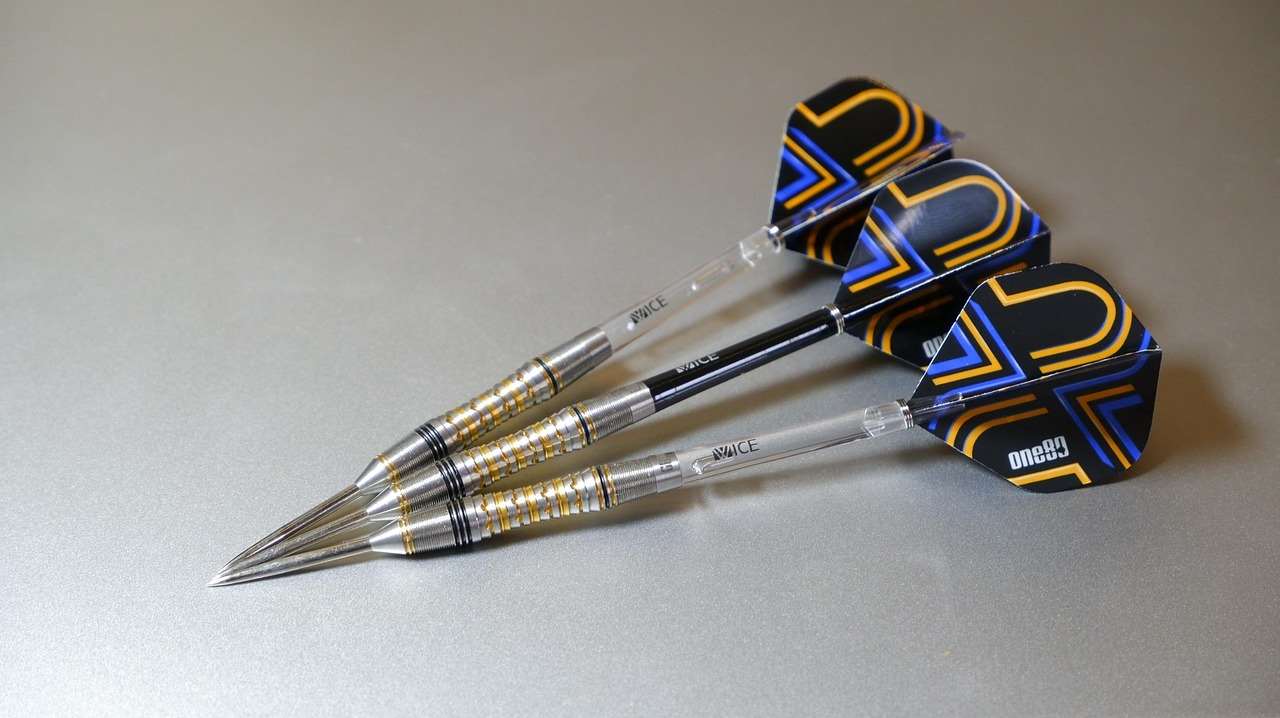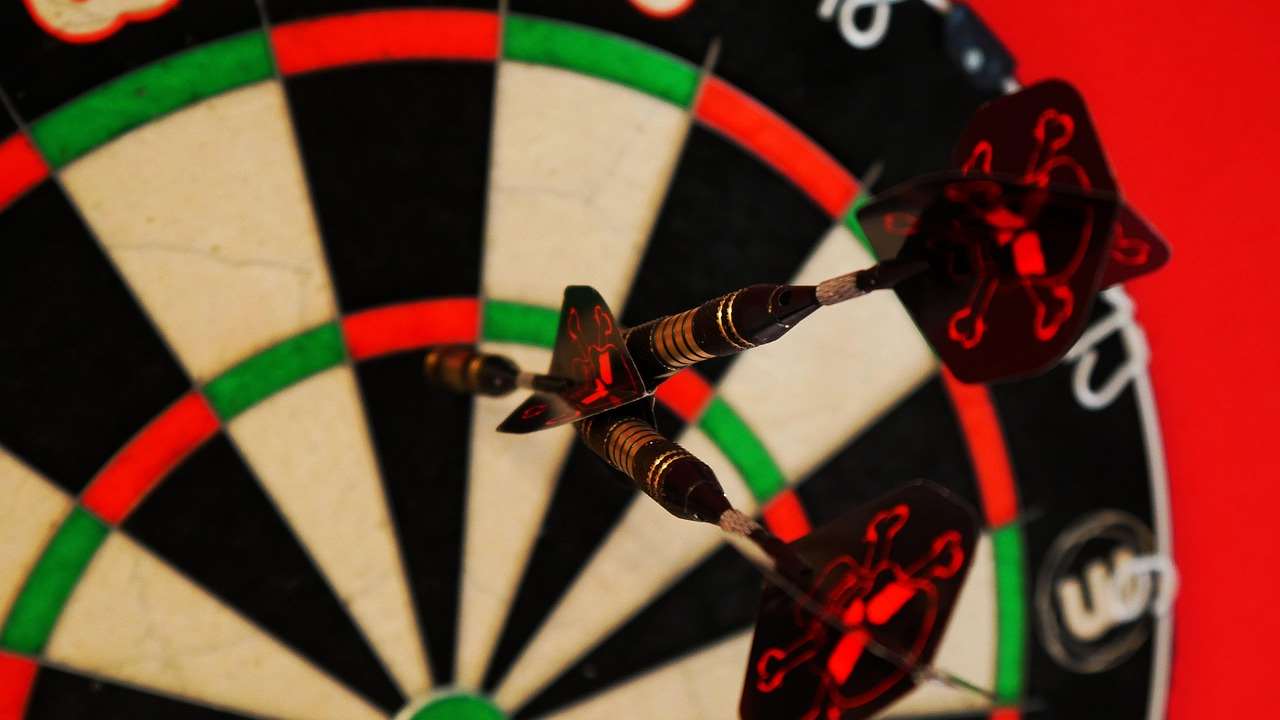Understanding Walk On Music Performing Rights is crucial for darts organizers and players alike; it’s about ensuring artists and copyright holders are compensated when their music is used publicly. This article will break down the complexities of these rights, explaining what they are, why they matter, and how to ensure compliance in the world of professional darts.
⚠️ Still Using Pen & Paper (or a Chalkboard)?! ⚠️
Step into the future! The Dart Counter App handles all the scoring, suggests checkouts, and tracks your stats automatically. It's easier than you think!
Try the Smart Dart Counter App FREE!Ready for an upgrade? Click above!
Understanding Walk On Music Performing Rights
In the exhilarating world of professional darts, the walk-on music is more than just background noise; it’s an integral part of the spectacle, a way for players to connect with the audience and build anticipation before a match. However, the use of these songs brings with it the important consideration of Walk On Music Performing Rights. But what exactly are these rights, and why are they so important?
Performing rights are a type of copyright that protects the creators and publishers of musical works. They ensure that whenever a song is played in public – whether it’s in a stadium, on the radio, or even in a pub – the copyright holders receive compensation. This compensation is collected and distributed by Performing Rights Organizations (PROs), such as Darts Culture And Community Guide ASCAP and BMI in the United States, PRS for Music in the UK, and similar organizations around the world.
Without these rights, artists would struggle to make a living from their work, and there would be less incentive to create new music. Furthermore, using copyrighted music without permission can lead to legal trouble, including hefty fines and potential lawsuits.
The key elements involve understanding copyright law and how it applies to public performances of music. It necessitates proper licensing and adherence to the terms set forth by the respective PROs. This ensures fair compensation for artists and protects event organizers from legal repercussions.

Why Walk On Music Performing Rights Matter in Darts
The electrifying atmosphere of a darts event is significantly enhanced by the carefully selected walk-on music. Imagine Gerwyn Price entering to “Ice Ice Baby” or Michael van Gerwen striding to “Seven Nation Army.” These moments are iconic, but they also involve the use of copyrighted material, making Walk On Music Performing Rights a vital consideration.
Here’s why these rights matter specifically in the context of darts:
- Public Performance: Darts events, whether televised or held in arenas, constitute public performances of music. This triggers the need for proper licensing.
- Commercial Use: The use of music contributes to the overall entertainment value and commercial success of the event. Therefore, it’s essential to compensate the copyright holders for their contribution.
- Legal Compliance: Ignoring performing rights can result in legal action, including fines and lawsuits, which can damage the reputation and financial stability of the event organizers.
- Ethical Considerations: Supporting artists and creators through proper licensing is an ethical responsibility. It ensures that they are fairly compensated for their work and encourages continued creativity.
Beyond the legal and ethical aspects, respecting performing rights also enhances the professional image of the darts industry. It demonstrates a commitment to upholding intellectual property rights and fostering a sustainable environment for music creation.
Ensuring Atmosphere At Live Darts Matches is maintained, whilst paying for the music played, is the only legal and ethical way to ensure that your darts event is a success.
How to Obtain the Necessary Licenses
Securing the necessary licenses for walk-on music can seem daunting, but it’s a relatively straightforward process. The first step is to identify the relevant Performing Rights Organizations (PROs) in the territories where your events are held. In most cases, you will need a blanket license that covers the entire repertoire of songs managed by the PRO.
Here’s a step-by-step guide:
- Identify the PROs: Research the PROs that operate in the countries where your darts events take place. Common examples include ASCAP, BMI, SESAC (in the US), PRS for Music (in the UK), GEMA (in Germany), and SOCAN (in Canada).
- Contact the PROs: Reach out to each PRO to inquire about their licensing options for live events. They will typically have specific licenses tailored to different types of venues and events.
- Obtain a Blanket License: A blanket license grants you the right to play any song in the PRO’s repertoire for a set period, usually a year. This is often the most cost-effective option for darts events, as it covers a wide range of music.
- Provide Event Details: You will need to provide the PROs with details about your events, such as the venue size, audience capacity, and frequency of events. This information helps them calculate the appropriate license fee.
- Pay the License Fee: Once you have agreed on the terms of the license, you will need to pay the fee. The cost of the license will vary depending on the size and scope of your events.
- Keep Records: It’s essential to keep accurate records of the music played at your events. This may be required by the PROs to verify compliance with the license agreement.

Navigating these regulations is paramount for any darts organizer. This process ensures compliance and safeguards against potential legal issues. By understanding and adhering to these licensing procedures, event planners can focus on creating memorable experiences for fans and players alike.
Alternative Options for Music Licensing
While blanket licenses from PROs are the most common solution, there are alternative options to consider:
- Direct Licensing: In some cases, you may be able to obtain licenses directly from the copyright holders (songwriters and publishers). However, this can be a time-consuming and complex process.
- Royalty-Free Music: Royalty-free music libraries offer pre-cleared music that can be used without paying ongoing royalties. However, the selection may be limited, and the music may not be as well-known or popular as mainstream songs.
- Original Music: Commissioning original music for your events can be a unique and cost-effective alternative. You would own the copyright to the music, eliminating the need for performing rights licenses.
The Role of Players in Walk On Music Performing Rights
While the responsibility for obtaining licenses primarily falls on event organizers, players also have a role to play in ensuring compliance with Walk On Music Performing Rights. Players often have a say in the selection of their walk-on music, and it’s important for them to be aware of the legal implications.
Here are some ways players can contribute:
- Consult with Organizers: Discuss your music choices with the event organizers to ensure that they have the necessary licenses.
- Provide Song Information: Provide the organizers with accurate information about the songs you want to use, including the title, artist, and songwriter.
- Be Open to Alternatives: If a particular song is problematic from a licensing perspective, be open to considering alternative options.
- Promote Compliance: Encourage other players and organizers to respect performing rights.
By working together, players and organizers can ensure that the walk-on music enhances the atmosphere of darts events while also respecting the rights of artists and creators. Also, being proactive can assist in Getting Tickets For Darts Events, as this can only be a positive point for the industry.

Consequences of Non-Compliance
Failing to comply with Walk On Music Performing Rights can have serious consequences. Copyright infringement is a violation of federal law and can result in significant financial penalties.
Here are some potential repercussions:
- Fines: Copyright holders can sue for statutory damages, which can range from hundreds to thousands of dollars per infringement.
- Lawsuits: In addition to fines, copyright holders can also sue for actual damages, which can include lost profits and legal fees.
- Injunctions: A court can issue an injunction preventing the event organizer from using copyrighted music in the future.
- Reputational Damage: Copyright infringement can damage the reputation of the event organizer and the darts industry as a whole.
It’s crucial to understand that ignorance of the law is not a defense. Event organizers are responsible for ensuring that they have the necessary licenses, regardless of whether they were aware of the requirements. The legal ramifications can be substantial, potentially impacting the financial stability and reputation of both individual events and the broader darts community.
Best Practices for Managing Music Licensing
To avoid the pitfalls of non-compliance, it’s essential to implement best practices for managing music licensing. Here are some key recommendations:
- Designate a Responsible Party: Assign a specific individual or team to be responsible for managing music licensing.
- Conduct a Music Audit: Regularly review the music being used at your events to ensure that it is properly licensed.
- Maintain Accurate Records: Keep detailed records of all licenses obtained, payments made, and music played.
- Stay Informed: Stay up-to-date on changes to copyright law and performing rights regulations.
- Seek Professional Advice: Consult with a music licensing expert or attorney for guidance on complex issues.
By proactively managing music licensing, event organizers can minimize their risk of copyright infringement and ensure that they are supporting artists and creators in a fair and ethical manner. Also, don’t be afraid to ask those with experience of Experience Attending Live Darts, as they will likely have good knowledge of best practice.

The Future of Music Licensing in Darts
The landscape of music licensing is constantly evolving, driven by technological advancements and changing consumer behavior. In the future, we can expect to see even more sophisticated and streamlined licensing solutions emerge.
Here are some potential trends to watch for:
- Digital Licensing Platforms: Online platforms that simplify the process of obtaining and managing music licenses.
- Blockchain Technology: Blockchain-based systems for tracking and distributing royalties more efficiently and transparently.
- AI-Powered Licensing: Artificial intelligence algorithms that can automatically identify and license music used in videos and other content.
- Micro-Licensing: Flexible licensing options that allow for short-term or limited use of copyrighted music.
As these technologies continue to develop, it will become even easier for darts organizers to comply with Walk On Music Performing Rights and support the creative community.
Case Studies: Examples of Successful Music Licensing
Examining real-world examples can provide valuable insights into how to effectively manage music licensing in darts. Let’s consider a few hypothetical case studies:
Case Study 1: The Premier League Darts
The Premier League Darts, a major televised event, invests heavily in music licensing to ensure compliance. They obtain blanket licenses from all relevant PROs in the countries where the events are held. They also work closely with the players to ensure that their music choices are properly licensed. This proactive approach has helped them avoid any copyright infringement issues and maintain a positive reputation.
Case Study 2: A Local Darts Tournament
A small, local darts tournament operates on a limited budget. They opt for a combination of royalty-free music and original compositions to minimize licensing costs. They also obtain a limited license from a local PRO to cover any mainstream songs that are played. This cost-effective strategy allows them to comply with performing rights regulations without breaking the bank. When planning these events, don’t forget your Travel Tips For Darts Tournaments!
Case Study 3: An Individual Darts Player
An individual darts player, sponsored by a local company, uses a specific song as their walk-on music for every tournament. The player ensures their sponsor covers the licensing costs to the PRO for the right to publicly play the song during their walk-on. This not only ensures compliance but also promotes the local company’s support for the arts.

Conclusion: Ensuring Fair Play for Artists and Organizers
Navigating the world of Walk On Music Performing Rights may seem complex, but it’s a crucial aspect of running successful and ethical darts events. By understanding the importance of these rights, obtaining the necessary licenses, and implementing best practices for music licensing, event organizers can avoid legal trouble and support the creative community. Remember, paying for the music contributes to a thriving ecosystem where artists are fairly compensated for their work.
Take action today to ensure that your darts events are fully compliant with performing rights regulations. Contact the relevant PROs in your region, obtain the necessary licenses, and implement a robust music licensing management system. By doing so, you’ll be contributing to a more sustainable and equitable future for the music industry.
Hi, I’m Dieter, and I created Dartcounter (Dartcounterapp.com). My motivation wasn’t being a darts expert – quite the opposite! When I first started playing, I loved the game but found keeping accurate scores and tracking stats difficult and distracting.
I figured I couldn’t be the only one struggling with this. So, I decided to build a solution: an easy-to-use application that everyone, no matter their experience level, could use to manage scoring effortlessly.
My goal for Dartcounter was simple: let the app handle the numbers – the scoring, the averages, the stats, even checkout suggestions – so players could focus purely on their throw and enjoying the game. It began as a way to solve my own beginner’s problem, and I’m thrilled it has grown into a helpful tool for the wider darts community.